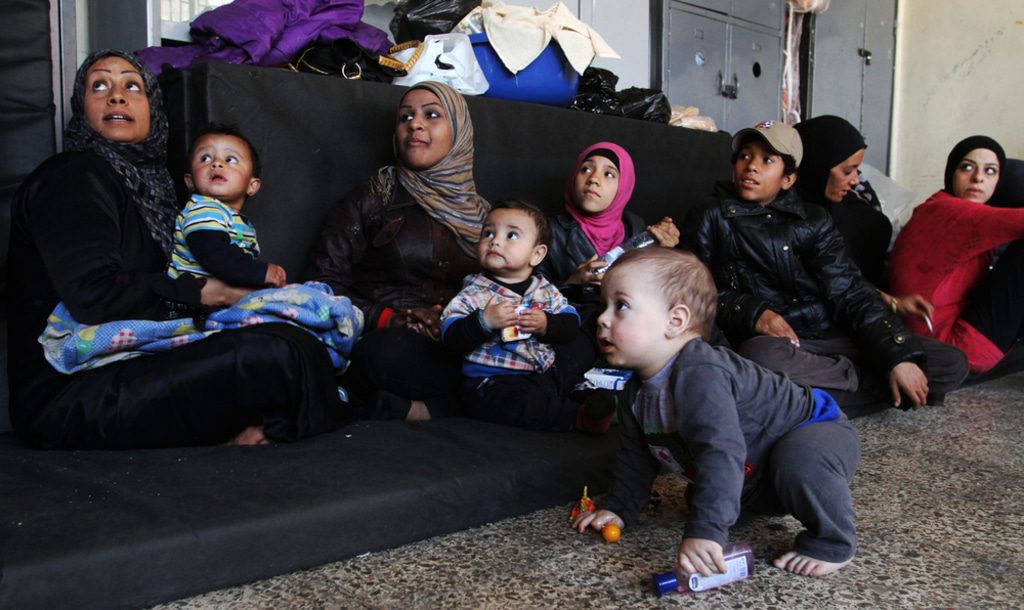Yarmouk used to be a decent place to live, with schools, hospitals, a food distribution center, and other facilities now it's a ghost town.

Yarmouk is an unofficial Palestinian refugee camp that lies 8km from the centre of Damascus. Established in 1957, it once housed more than 148,500 registered refugees. After intense fighting during the Syrian war, it has become almost deserted.
Although the fighting stopped in May 2018, the fate of Yarmouk’s displaced inhabitants remains precarious. After three years under the Islamic State (IS), the Syrian government forces retook the camp, forcing most of the remaining residents out as part of an agreement with the extremist group. IS fighters were sent to areas under the group’s control in the Syrian desert, while civilians were directed to the governorate of Idlib in northwestern Syria.
Largely destroyed during the last weeks of fighting, the camp was first besieged in 2012 by the Syrian army, after clashes erupted between the Free Syrian Army (FSA) opposition group and the regime-backed Popular Front for the Liberation of Palestine (PFLP-GC). This led to the camp being run by various factions until IS took over in 2015.
“The camp has been almost completely destroyed after years of siege, conflict and the most recent upsurge of fighting which was catastrophic,” Chris Gunness, spokesman for the United Nations Relief and Works Agency for Palestine Refugees in the Near East (UNRWA), told Fanack Chronicle. “Yarmouk had already been described by a former secretary general as a refugee camp that had become a death camp, like one of the lower reaches of hell. Thousands of homes have been destroyed, water, electricity and health services are nonexistent.”
Yarmouk used to be a decent place to live, with schools, hospitals, a food distribution centre and other facilities. Many of the refugees were professionals, working as doctors, engineers and civil servants or as casual workers and street vendors. “There were once 160,000 Palestine refugees in Yarmouk; now there are almost none,” Gunness added. “These refugees had already suffered untold hardship because of years of besiegement and hostilities. Then, in late April 2018, intensified fighting in Yarmouk destroyed infrastructure and displaced thousands. The traumas of war, combined with desperation and fear about the future are taking an enormous toll, particularly on the children. It is unclear when, and if, refugees will be able to return.”
For some of them, it will be their second displacement since fleeing the war in Palestine between 1948 and 1967. Palestinian blogger Budour Hassan described Yarmouk as “the lifeline that connected tens of thousands of Palestinian refugees to Palestine. It was the thread weaving together their memories of home and a harbour protecting their right of return from drowning in oblivion”.

In 2014, Palestinian photographer Niraz Saied said, “Yarmouk as we know it is gone forever. It is either heading towards complete decimation or becoming an Islamic emirate.”
The problem for these displaced refugees is that as other Palestinian camps in the region have been destroyed and rebuilt, it is unclear whether Yarmouk will be as well. “[Rebuilding] takes time, money and political will,” Gunness said. “UNWRA is not involved in any substantive discussions about rebuilding Yarmouk and has not yet been granted access to assess the damage to the agency’s installations.”
The agency was, however, able to access the neighbouring area of Yalda for three days in early June 2018, providing food and non-food items to 1,376 families. “Prior to that we had not had access to Palestine refugees from Yarmouk since 25 May 2016,” Gunness said. “We need permanent access to this population as they are experiencing huge levels of need.”
He added that across the country, UNWRA is providing urgent humanitarian assistance including food, health care and cash to hundreds of thousands of Palestine refugees, but he noted the dire lack of funds. “The Syria portion of the Emergency Appeal is less than 5 per cent funded. We have already had to reduce our emergency cash assistance in Syria from $64 per month to $46g … and unless the donor community responds rapidly, there will be further reductions of these life-saving services. That could prove catastrophic for hundreds of thousands of people.”
Yarmouk’s former residents do not seem to be a priority in Syria, where many questions regarding reconstruction and resolutions remain unanswered. In the meantime, refugees have been forced to leave the country or stay in Idlib, which is still controlled by the jihadist alliance Hay’at Tahrir al-Sham.
The fate of Palestinian refugees in Syria continues to be unclear as the regime pursues its objective of regaining control of the entire country.


